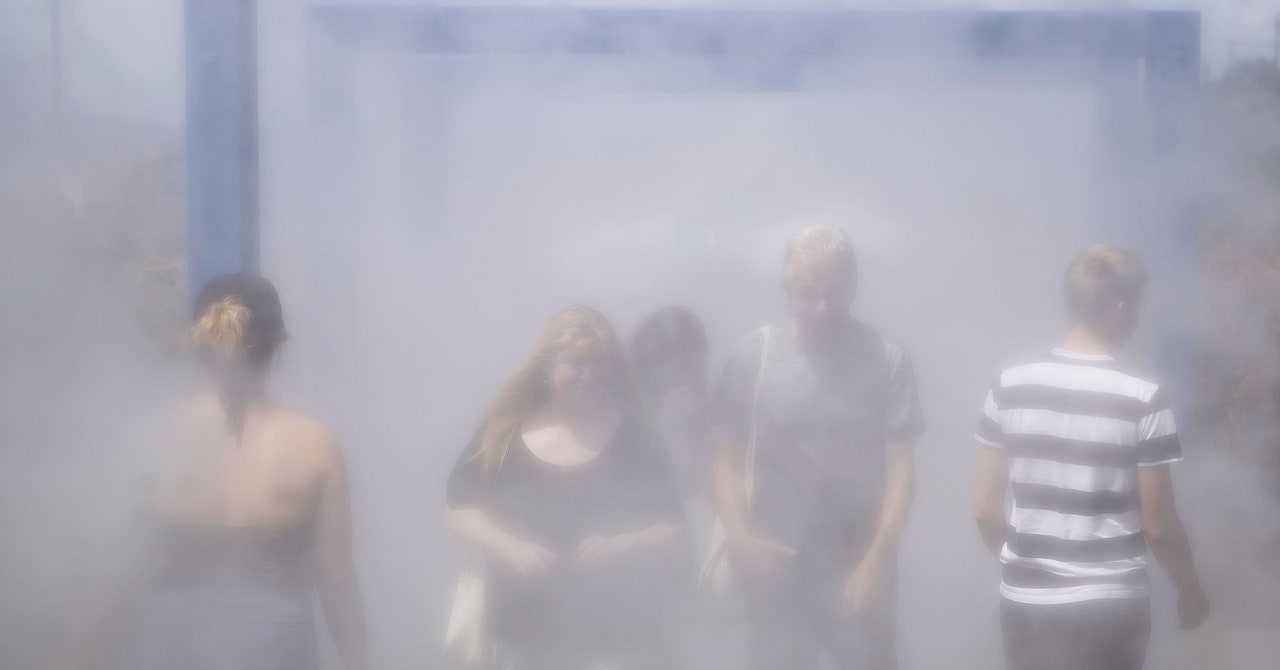
Accordingly, in Miami the heat index—a measurement that combines temperature and relative humidity—has been above 100 for over 40 days in a row, smashing the previous record of 32 days in 2020.
Meanwhile in California, Gershunov’s research has confirmed that heat waves are getting stickier. “It’s not just more frequent, more intense, and longer-lasting heat waves, like is the case all over the world with the warming climate,” says Gershunov. “Here, the heat waves are also changing flavor. They’re becoming more expressed disproportionately in nighttime temperatures. It turns out it’s because of humidity, and that’s related to the warming of the ocean.”
If you’re in a desert and suffering days of 110-plus-degree heat, you can at least look forward to those temperatures coming down at night, as the landscape sheds built-up heat. But when it’s humid, the atmosphere stubbornly holds onto that heat. “With more and more humidity, more people will be impacted during the night. And I don’t think we’re ready at all for that,” says Tarik Benmarhnia, an environmental epidemiologist at the UC San Diego. “There’s basically no break, no pause in the stress that heat is going to cause to humans.”
The more humid it gets, the harder it is for water to evaporate off the body and the less effective sweating becomes. “If that’s not effective, the only way is to have more and more exchange between the blood and the skin,” says Benmarhnia. “To do that, our body sends more blood, faster and faster.”
That’s why skin flushes if it’s hot out—the body is trying to expel heat via the water in the blood. That means blood is diverted from vital organs to the skin, a sort of physiological panic that’s especially dangerous for people with cardiovascular disease. “But if it’s not effective, we just waste a lot of energy, and our circulation system is going to be overwhelmed and lead to very severe complications,” says Benmarhnia. “This is the main cause of hospital admission and emergency department visits during a heat wave.” High heat is correlated with risk of heart attacks and strokes; indeed, heat kills more Americans each year than any other kind of disaster.
It can also potentially cause issues for babies developing in the womb. “For people who are pregnant, blood flow is also diverted from the placenta when the core body temperature increases,” says Rupa Basu, chief of the air and climate epidemiology section at the California EPA’s Office of Environmental Health Hazard Assessment. “That also could provide less nutrients to the fetus, and sometimes, in more extreme cases, could cause preterm delivery.”
Getting more people access to air conditioning will go a long way in preventing heat-related deaths, since AC both reduces indoor temperatures and humidity. “Cooling centers” are a key tool—facilities where people who don’t have AC, or the unhoused population, can take refuge. But because high humidity extends scorching temperatures through the night, people often need that respite through the evening, when cooling centers are closed.

